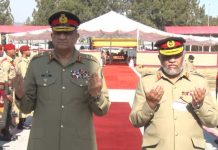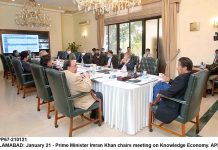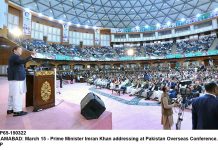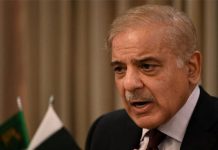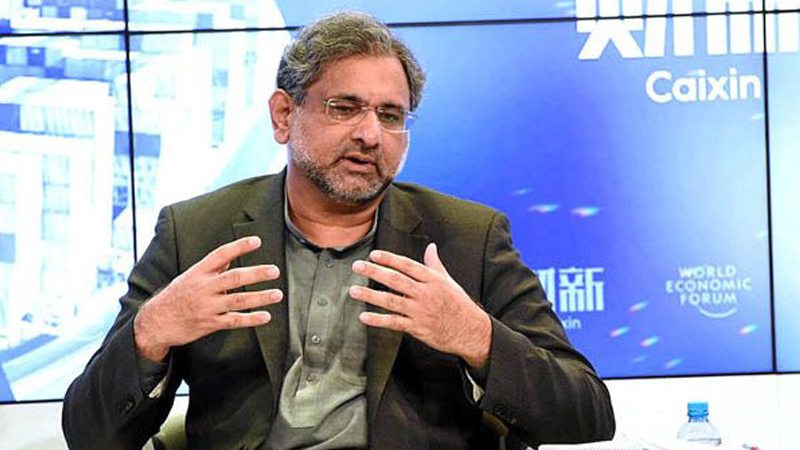
He was speaking at a panel discussion on ‘The Belt and Road Impact’, part of the 48th World Economic Forum being held at Davos Switzerland.
The BRI is envisioned to enhance connectivity across continents through infrastructure investment, cultural exchange and transfer of technological know-how.
Abbasi, who is on a two-day visit to attend the forum on the invitation of its President Professor Klaus Schwab, said Pakistan recognizes the initiative of President Xi Jinping of China who through his vision has created global connectivity for tomorrow. He said the initiative touches the lives of half of the humanity and would have a far reaching impact across the continents.
The other panelists in the discussion on the sidelines of the forum included: Jin Liqun, president of Asian Infrastructure Investment Bank (AIIB), Li Xin, managing director of Caixin Global, Kirill Dmitriev, chief executive officer of Russian Direct Investment Fund, Ren Hongbin, chairman of China National Machinery Industry Corp (Sinomach), Chan Chun Sing, Minister of Singapore, and Michael S Burke, chairman and chief executive officer of AECOM.
The panelists explored implications for regional collaboration and the expansion of clean infrastructure. They offered their perspective on what the project would offer the world and spoke on the implications for regional collaboration and the expansion of clean infrastructure.
The prime minister said the BRI would create greater openness and create linkages among the countries and the people. He said the impact of the BRI was already being felt by Pakistan as new power project were coming up, the country’s railway sector was being upgraded, along with new motorways, road structures, etc. Abbasi pointed that the country’s cement industry was adding 56 per cent capacity, while the exports had increased by 15 per cent.
He said the BRI has boosted investor’s confidence and the impact of the project was far greater and far reaching than the mere infrastructure on the ground.
The prime minister while agreeing with the views of President Asian Infrastructure Investment Bank said the governments must keep their guard against creating ‘white elephants’ and ensure optimum use of resources to create projects that were financially sustainable.
He said Pakistan through the construction of its roads, rails and port was providing connectivity to the Central Asian Republics. He expressed the belief that complementarities would create much greater sustainability for the project.
Abbasi said the BRI was perfectly in sync with the 2018 World Economic Forum meeting and looks forward to a shared future, particularly among the participating countries. He stressed the need for ensuring that any projects under the BRI do not create any distortions. He said despite the bilateral constraints, a level playing field needs to be provided for all investors, particularly the local ones, so as to achieve optimal benefits.
The Asian Bank president said the project needs to be seen as one that was generating global good for the people in general and would benefit a globalised world. He said it would also mitigate the concerns by sharing the benefits.
When asked by the moderator to sum up the importance of the project and to win trust and confidence in one word, Abbasi said the BRI should create ‘jobs’ while the other speakers called for continued broad-based consultation, common connectivity, sustainable social lessons, global collaboration and signature projects.
The prime minister said the socio-economic integration and uplift of Federally Administered Tribal Areas (FATA) was a major priority of the government of Pakistan. He emphasized that funding for water storage dams in FATA region would help in reintegrating and uplifting the region seamlessly.
The prime minister also sought the support of AIIB for implementation of some of shovel ready projects in water conservation, infrastructure and energy sectors. He also invited president AIIB to visit Pakistan.
Published in Daily Times, January 25th 2018.

